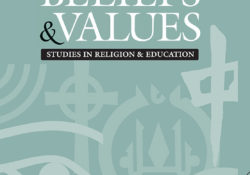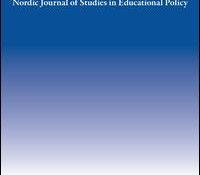tandfonline.com har udgivet en rapport under søgningen “Teacher Education Mathematics”: ABSTRACT ABSTRACT This article addresses how elementary school teachers approach Bildung when planning and monitoring the in-school- and at-home work of 6- and 9-year-old pupils. By examining a national sample of 204 weekly work plans designed by teachers in Norwegian schools, we investigate whether and how curriculum practices acknowledge principles of Bildung by opening up multiple futures through encouraging pupils to engage in meaning-making processes. To identify how work plans structure pupils’ schoolwork, we adopt a system-theoretical framework that distinguishes between conditional and purposive programme forms. The most interesting finding is that a substantial number of the investigated teachers use a purposive programme form. Through specifying objectives and assessment criteria, the teachers expect that pupils will develop and master a… Continue Reading →
Like this:
Like Loading...
tandfonline.com har udgivet en rapport under søgningen “Teacher Education Mathematics”: ABSTRACT ABSTRACT This article argues that crucial elements of the three most important theoretical models of twentieth-century education can be traced back to three Protestant denominations that were developed in Europe in the sixteenth and seventeenth centuries. First, rather than to look in depth at the Protestant Reformers’ own educational ideas, the paper examines their perceptions of how the social or political order should be governed as appropriate for salvation. It then shows how educational models became possible in the context of the three Protestant denominations as they morphed across time and space: German Lutheranism and how it eventually gave rise to the theory of Bildung, which goes hand in hand with the dual world view of Lutheranism; the political… Continue Reading →
Like this:
Like Loading...
tandfonline.com har udgivet en rapport under søgningen “Teacher Education Mathematics”: ABSTRACT ABSTRACT Movement integration (MI) has become a significant part of contemporary educational policy; it implies that teachers of any school subject are responsible for organizing movement activities that are of educative value. In this paper, we use Wolfgang Klafki’s Bildung theoretical analysis to examine contemporary approaches to MI and clarify dominant theoretical and didactic ways of working with MI. We aim to suggest a new understanding of MI by applying Klafki’s conception of categorial Bildung. We argue that it enables educators to emphasize the educative and existential potential of the embodied, social and emotional involvement with the academic content. Our analyses illustrates the thorough didactic consideration needed to transform an educational policy into real-world education. Link til kilde
Like this:
Like Loading...
tandfonline.com har udgivet en rapport under søgningen “Teacher Education Mathematics”: ABSTRACT ABSTRACT What can educators working to develop critical thinking (CT) in their classrooms gain from engaging with the German/Scandinavian tradition of Bildung-centred Didaktik? This article takes up the challenge of how to develop an epistemology of CT that is relational and contextual and gives students the possibility of engaging in ethical debates about social justice, as called for by critical pedagogues such as Lim (2011, 2015). The backdrop is an increasing focus on CT as a prominent educational goal in the Organisation for Economic Co-operation and Development and beyond, a development that makes it important to clarify the epistemological basis for how CT can be developed in schools and the ethical foundations and implications of the different approaches in… Continue Reading →
Like this:
Like Loading...
tandfonline.com har udgivet en rapport under søgningen “Teacher Education Mathematics”: ABSTRACT ABSTRACT This article builds upon the international dialogue around ‘curriculum crisis’ initiated by Michael Young in Journal of Curriculum Studies (JCS) in 2013 and followed up in JCS in 2015. It seeks to expand the dialogue in three avenues. First, when considered from a sociological perspective, Young is correct to declare ‘curriculum crisis’; however, his position is limited only to the conflict theory. Second, from educational perspectives, the curriculum crisis as such is self-inflicted and it has been more of a battle among different curriculum ideologies in the Anglo-Saxon world and resistance to Bildung-centred Didaktik tradition in the Western world more broadly. Third, it points to the fourth industrial revolution as an inevitable phase. It concludes that ‘curriculum crisis’… Continue Reading →
Like this:
Like Loading...




